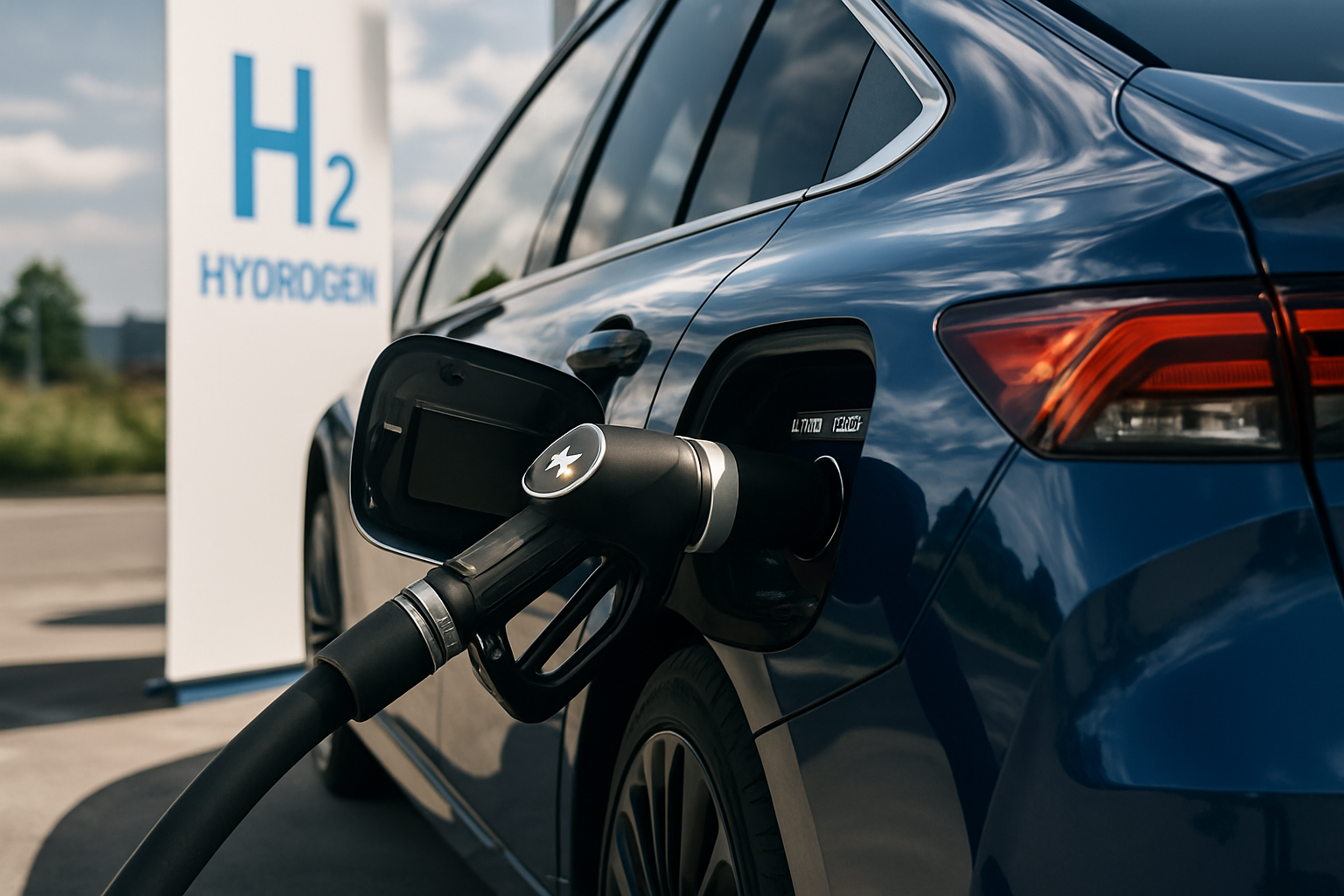Hydrogen Fuel Cells: The Quiet Revolution in Heavy-Duty Transport
The roar of diesel engines may soon give way to the whisper of hydrogen fuel cells in the world of heavy-duty transportation. As the automotive industry grapples with environmental concerns and stringent emissions regulations, hydrogen fuel cell technology is emerging as a promising solution for long-haul trucks, buses, and other large vehicles. This transformative technology offers a unique blend of zero-emission operation, quick refueling times, and the potential for long-range travel, making it an increasingly attractive option for fleet operators and manufacturers alike.

This process is not only clean but also highly efficient. Fuel cells can convert up to 60% of the energy in hydrogen to electricity, compared to the 20-35% efficiency of traditional internal combustion engines. Moreover, fuel cells have no moving parts, which reduces maintenance needs and increases reliability.
The Advantages for Heavy-Duty Transport
The heavy-duty transport sector presents unique challenges that hydrogen fuel cells are well-positioned to address. Unlike battery electric vehicles, which can take hours to charge, hydrogen-powered vehicles can be refueled in minutes, much like their diesel counterparts. This quick turnaround is crucial for commercial operations where vehicle downtime translates directly to lost revenue.
Furthermore, hydrogen fuel cells offer a significant weight advantage over battery systems, especially for long-haul applications. While batteries become heavier as energy capacity increases, fuel cells maintain a relatively constant weight regardless of range. This characteristic is particularly beneficial for trucks, where payload capacity is a critical factor.
Infrastructure and Production Challenges
Despite its promise, the widespread adoption of hydrogen fuel cell technology faces significant hurdles, primarily in the areas of infrastructure and production. As of now, hydrogen refueling stations are few and far between, making long-distance travel challenging. However, several countries and companies are investing heavily in expanding hydrogen infrastructure. For instance, Germany plans to have 400 hydrogen stations by 2025, while Japan aims for 1,000 by 2030.
The production of hydrogen itself presents another challenge. Currently, most hydrogen is produced through steam methane reforming, a process that still relies on fossil fuels and produces carbon emissions. However, there is growing interest in green hydrogen, produced through electrolysis powered by renewable energy sources. As the cost of renewable energy continues to fall, green hydrogen production is becoming increasingly viable.
Technological Advancements and Industry Developments
Recent years have seen significant advancements in fuel cell technology. Improvements in catalyst design and membrane technology have increased efficiency and durability while reducing costs. For example, the use of platinum-group metal catalysts has been dramatically reduced, addressing one of the key cost barriers to fuel cell adoption.
Several major automotive and transport companies are investing heavily in hydrogen technology. Hyundai has been a pioneer in this field, with its XCIENT Fuel Cell trucks already operating in Switzerland. Daimler and Volvo have formed a joint venture to develop fuel cell systems for heavy-duty vehicles, while Toyota and Kenworth have partnered to create a fleet of fuel cell trucks operating at the Port of Los Angeles.
The Road Ahead: Challenges and Opportunities
While hydrogen fuel cells show great promise, several challenges remain. The technology must prove its durability and reliability in the demanding conditions of heavy-duty transport. Cost reduction is also crucial, both for the fuel cells themselves and for hydrogen production and distribution.
However, the potential benefits are substantial. Beyond zero-emission operation, hydrogen fuel cells offer the possibility of energy independence for many countries, as hydrogen can be produced from a variety of sources. Additionally, as renewable energy production sometimes exceeds grid demand, hydrogen production could serve as a valuable energy storage mechanism, helping to balance the grid and make better use of renewable resources.
As we look to the future of heavy-duty transport, hydrogen fuel cells represent a compelling option. While challenges remain, the technology’s unique advantages make it a strong contender in the race to decarbonize our roads. With continued investment and development, we may soon see a new generation of clean, quiet, and powerful hydrogen-powered vehicles dominating our highways and ports.





